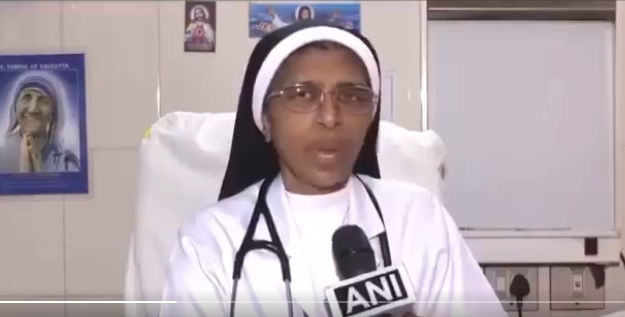Doctors at Devamatha Hospital in Kochi, India, where former Prime Minister Raila Amollo Odinga was urgently admitted following a cardiac arrest, have revealed heartbreaking details of his final moments.
Cardiologist Dr. Sr. Alphons, who led the medical team that attended to Raila, confirmed that despite their best efforts, they were unable to save his life.
“Despite our continued cardiopulmonary resuscitation (CPR) and other measures, we could not make him survive,” said Dr. Alphons.
“We are very sorry to inform you that he is no more with us. Our sincere condolences and prayers go out to his family and to the people of Kenya.”
The doctor made the remarks during an interview with ANI News, a South Asian multimedia news agency, expressing deep sorrow over the loss of one of Africa’s most respected political figures.
According to medical sources, Raila had travelled to India on October 4 after suffering a minor stroke in Kenya. He was admitted to the Sreedhareeyam Ayurvedic Eye Hospital and Research Centre in Koothattukulam, Ernakulam, where he was receiving Ayurvedic therapy.
Hospital insiders said that upon arrival, Raila was in a wheelchair, but later showed encouraging signs of recovery. His vitals had stabilized, and he had even begun walking short distances unaided. Those close to him said he was optimistic and often spoke of returning home soon.
However, tragedy struck on Wednesday morning when Raila followed his usual routine — a short morning walk within the hospital compound around 8:30 a.m., accompanied by his personal doctor. During the walk, he suddenly collapsed after suffering a cardiac arrest.
Medical staff at Sreedhareeyam immediately administered CPR before rushing him to Devamatha Hospital in Kochi for emergency treatment.
Despite being admitted to the Intensive Care Unit (ICU) and undergoing advanced resuscitation procedures, doctors pronounced him dead at 9:52 a.m. (Indian Time).
Raila’s passing has sent shockwaves across Kenya and beyond, marking the end of a political journey that spanned decades and shaped the nation’s democratic landscape.
The ODM leader’s death also comes after weeks of speculation about his health, with the party having earlier assured Kenyans that he was responding well to treatment.
Until his final moments, those close to him said Raila remained cheerful, hopeful, and forward-looking, still discussing Kenya’s political future and expressing his desire to return home.
His death symbolizes the close of an era — the passing of a statesman whose courage, sacrifice, and vision defined Kenya’s struggle for democracy, justice, and national unity.



